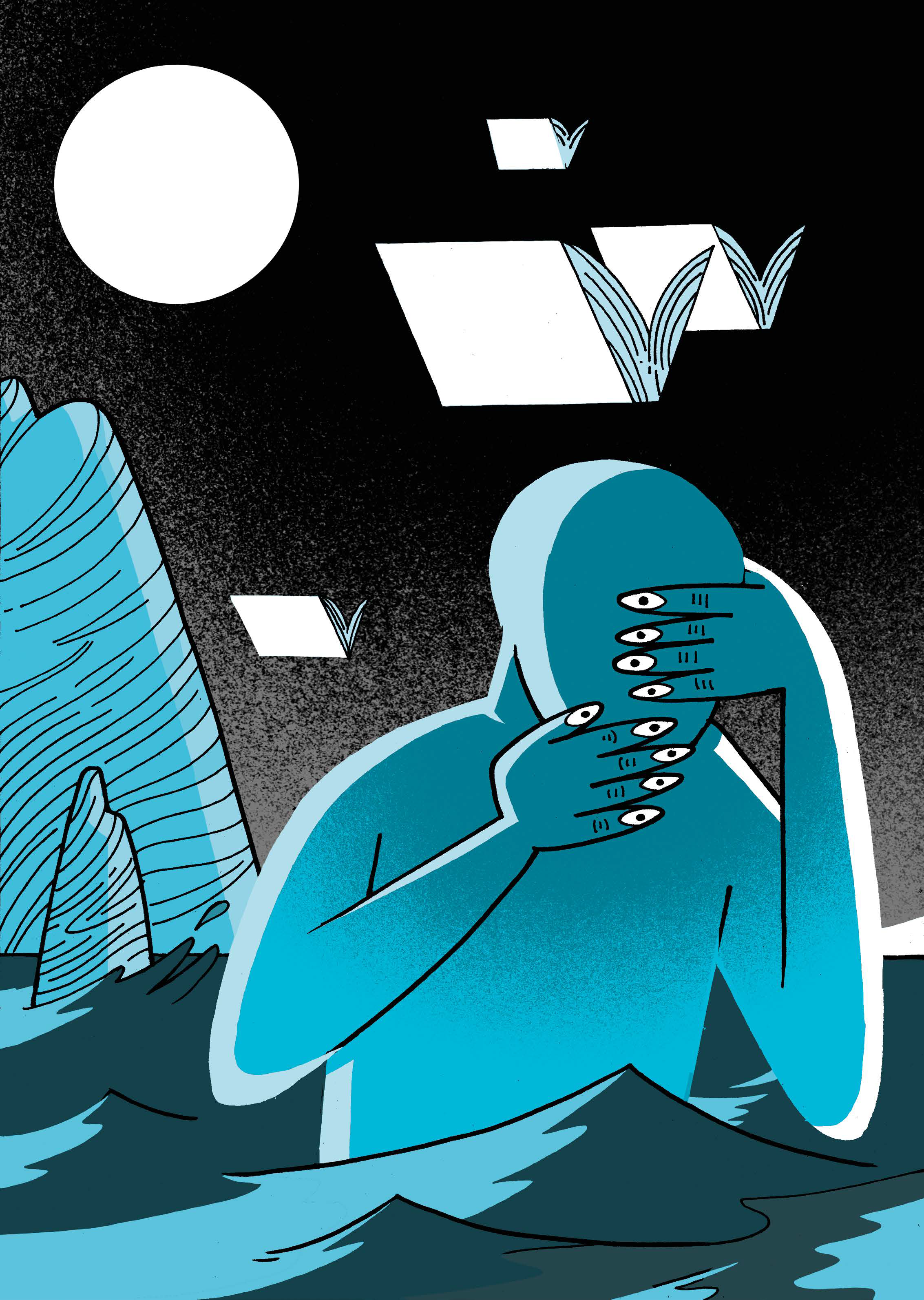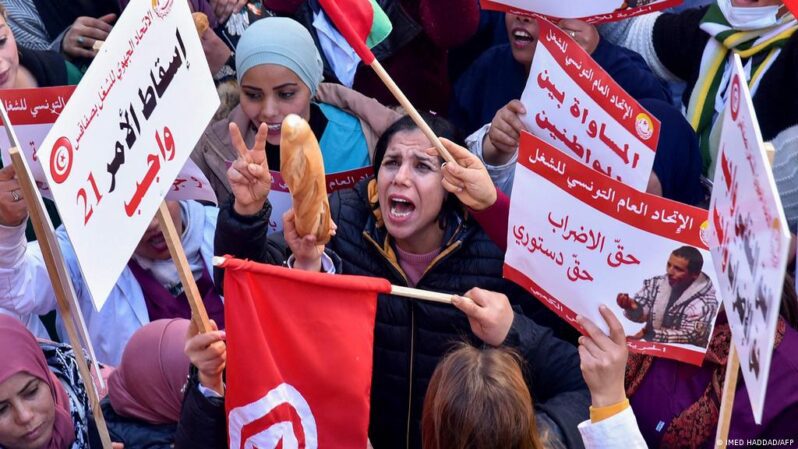Truth and Dignity in Tunisia: The Journey Continues

People interested in and discussing transitional justice in Tunisia were split into two opposing sides. The first deemed the approval of the Transitional Justice Law and, subsequently, the establishment of the Truth and Dignity Commission (TDC) and the Specialized Judicial Chambers for Transitional Justice a success in addressing the issues of the past, an important breakthrough in dismantling the system of corruption, and a gateway for holding those implicated in it accountable. They harnessed their efforts to support the process and pressure the government in order to prevent it from coming under attack and to demand the benefits it should entail, becoming partisans who not only reject criticism but also challenge the critics themselves. The second side insisted on denying every justification for transitional justice, deeming flipping through the pages of the past to be an attack on the national state and its figures. Hence, they countered – each from their own position – this cause of sedition with their every effort and power. They even accused the victims of taking control of the state’s resources, thereby painting them as plunderers of public funds and the perpetrators as patriots serving their country.
Amidst this tense, polarizing labor, it was difficult to declare support for transitional justice, celebrate the triumph of victims’ rights and a critical reading of national history and its events and figures, and support accountability while also consciously choosing not to stand among the loyalists because of reservations about their discourse and the process they had idealized. Similarly, it was difficult to oppose shortcomings and warn of deficiencies while still rejecting every attack on the values of transitional justice and attempt to establish a culture of nonaccountability. Hence, it was important to distinguish oneself from the critical discourse while criticizing it.
This was The Legal Agenda’s situation. It was committed to the value and idea and therefore blessed the MPs’ approval of the Transitional Justice Law and deemed it a success in the process of achieving democratic transition. This commitment did not prevent it from expressing concerns and fears about flaws that it deemed could, if voiced at the time, allow reform that accelerates the pace toward success. Hence, it was the first to draw attention to the rights issues that the Specialized Judicial Chambers’ procedures raised by breaching fair trial principles. It was also the first to criticize the leniency toward the people possessing the money encompassed by the law, fearing that it would allow them to reclaim authority after the reconciliation because of the power of money. At the time, The Legal Agenda’s team hoped that its contention would reach those capable of carrying out reform in the hope that the experience might benefit from an opinion supportive of transitional justice in all its dimensions. However, downplaying these objections and classifying them as an attack on transitional justice was apparently easier than working to correct its course in order to increase its chances of success.
Subsequently, after the remarkable rise of forces opposed to transitional justice and its institutions in the 2014 election results, The Legal Agenda made sure to align itself with those in the right, i.e. those demanding that transitional justice be accomplished and rejecting any attempt to overturn it. Hence, it was a platform for calling for transitional justice, celebrating its victories, and calling for the process to be accelerated. It was also the space where victims of violations spoke without restraints about their previous sufferings, their present demands, and their dreams for the future of their country and children. However, once again, this principled stance did not prevent its team from observing excesses by those managing the processes of this justice or from drawing attention to the negative results that could emerge from their dereliction and poor performance. The Legal Agenda hoped that its analysis could drive reform and help prevent further mistakes. Once again, the response was accusations of conspiracy for the sake of the system opposing transitional justice and collusion with the security syndicates. Several statements were issued warning about the danger of our discourse. Apparently, the intent was to solve issues and mistakes by covering them up or delegitimizing whoever raises them.
The publication of the TDC’s final report and the beginning of the Specialized Judicial Chambers’ work revealed unsatisfactory results across all areas of transitional justice, results that are expected to crystalize and become clearer in the coming period. This proved The Legal Agenda’s orientation correct and demonstrated the need to perform a critical review of what has been achieved in order to identify what needs to be accomplished. To this end, this issue aims, as the new parliamentary term begins, to recount the most important stages of transitional justice in preparation for correcting its course in future. In this regard, questions must again be asked about truth, the violations, the authoritarian system, and – in particular – the remembrance process that Tunisia carried out and its outcomes. What violations did we manage to document, analyze, and understand? What memory emerges from these actions to form a roadmap for achieving democratic transition? We present the following conclusions and questions:
-
While the TDC managed to document several stages, its analyses usually reflected the victims’ narrative without enough effort to place it in opposition to the perpetrators’ narrative, which usually remained on the sidelines of the remembrance process. The importance of remembering lies not only in objectively documenting the dictatorship’s practices but also in deducing the dimensions and, in particular, the human errors in order to understand them and prevent their repetition. The more complete the understanding of the past in all its dimensions, the more motivated the perpetrators will be to apologize and atone for their sins, the more we will protect the victims from any bigotry or harassment that could arise against them, and the closer we will get to accomplishing a true reconciliation. No less importantly, remembering in this sense remains a dire necessity for unifying the memory and preventing the emergence of factional memories that divide rather than unite. Furthermore, the main way to complete the work done so far or full develop our perception of the past may be to take measures that motivate a large number of perpetrators (especially the less serious ones) to talk earnestly, unambiguously, and of their own volition about the wrongs of the past and block anything that could deter them from doing so. Of course, the measures needed to protect the TDC’s archive and prevent it from being lost or leaked must also be taken. To help enrich this work, in this issue we are publishing a more complex testimony by one important witness of the conflict between Ennahda and Ben Ali’s regime during the first years of his rule, a testimony that breaks away from the assumption of the victim’s infallibility and absolute demonization of the torturer.
-
The TDC admitted that because of its heavy workload and short term, it neglected the institutional reform that transitional justice demands and merely referred a number of cases that it documented to the authorities and bodies in charge of these institutions. On this basis, the remembrance process that the TDC conducted seemed divorced from what are supposed to be its most important outputs: reforming the institutions in future, purging them from elements proven implicated in grave violations, and purging them from operational rules and practices that have often constituted a tool facilitating these violations.
-
Compensating the victims remains postponed. This is due not only to the scarcity of available resources and the uncertain political will to allocate them for this purpose or to the issues affecting the compilation of lists of victims but also to the emergence of factional stances that deliberately minimize or trivialize their suffering. Let us not forget that the aim of compensating the victims is above all to confirm the state’s humble recognition of the injustice that they endured. From this perspective, it is a culmination of the recognition of the injustice and not an alternative to it.
-
There is a large question surrounding how serious the Second Republic is in its approach to financial corruption and recovering stolen funds given the resounding failure in this regard and the small number of cases that have been resolved or witnessed any accomplishments. This was clearly apparent in the conflicting information about the management of this issue by the TDC or even the competent judicial and administrative bodies.
-
Given the above, how should the principle of accountability for the crimes of the past be approached? How can Tunisia strike a balance between this goal and the other goals of transitional justice, particularly when it comes to motivating perpetrators to give their confessions frankly and faithfully? Finally, supposing that the goal of accountability is given precedence in full or in part, how can we guarantee that trials follow fair trial principles, especially given the flaws in the organization of the Specialized Judicial Departments, whose seriousness The Legal Agenda repeatedly pointed out?
Some people think that Tunisia’s transitional justice project has reached its concluding stage. Their evidence is that the law has said so and the foreign experts who came and had their say in how it should be have now headed to other countries that have witnessed an Arab Spring to talk about the successes of the Tunisian experience and their credit for them. They lock their gaze on the outputs of the TDC’s work and say that all that is required now is to finalize them. For the reasons explained in this introduction, The Legal Agenda disagrees. It therefore calls upon everyone who wants justice to join hands on the long march to heal a society suffering from serious illnesses and reap the impending benefits.
This article is an edited translation from Arabic.
Keywords: Tunisia, Truth and Dignity Commission, TDC, Transitional justice



